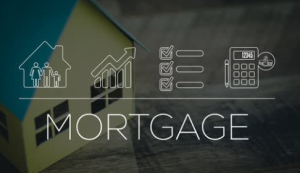
A Beginner’s Guide to Mortgages
Mortgages are vital to the house-buying process and the only method by which a vast majority of households in the UK can afford their homes. They are central to the UK property market, even as key variables continue to shift and destabilize the market. The first-time buyer might be confused as to what exactly a mortgage is; here, some essential answers are given to demystify the mortgage process.
What is a Mortgage?

A mortgage is a financial product offered by lenders such as banking institutions and credit unions that enables first-time buyers to buy a home without saving up for the entire value of that home. In this way, mortgages are long-term loans guaranteed against the property bought with the loan. They are repaid monthly over a period of decades. For assistance in navigating these choices, it’s worth considering guidance from professionals such as Flagstone Financial.
The Different Types of Mortgage

There are different kinds of mortgages, which can be used for different purposes and ends. There are two distinct kinds for domestic buyers, whether looking for their first home or their next home. The first is a conventional mortgage agreement, applied for and confirmed after a house has been chosen; the second is a ‘mortgage in principle,’ which allows house hunters to get provisional approval for a certain amount of money. The latter option can smooth out the house-hunting process and minimize administration in the event a property falls through.
For those buying a home with the intention of renting it out, there is the buy-to-let mortgage. This enables buyers to obtain the value of a property as a mortgage agreement but only to pay the interest on the agreement. The full value of the mortgage is paid at the end of the agreement to enable investors to accrue property value and rental income.
Applying for a Mortgage
In order to apply for a mortgage, a given buyer needs to demonstrate that the value they are applying for is within their means. This would be demonstrated through earnings, financial history, credit score and savings. The deposit is also a key piece of the puzzle and can impact the viability of a given mortgage agreement. Saving money in a tax-efficient savings account can ensure a greater deposit is available, reducing the amount to repay on a mortgage and lightening the financial load as a result.
Understanding Mortgage Rates

Mortgages are built around interest rates. Lenders attain value from offering mortgages through the interest applied to mortgage repayments. It is in the seller’s best interest to find a mortgage deal with a low-interest rate, guaranteed for a long period of time. These are fixed-rate mortgages and allow buyers to lock in at a business rate. Variable-rate mortgages are susceptible to the movements of the market, which can sometimes incur significant costs – as evidenced by recent hikes to interest rates.





